- Learning time
- 30 minutes
- First play time
- 100 minutes
Pandemic: Iberia
Designed by: Jesús Torres Castro,Matt Leacock
Pandemic: Iberia is one of many iterations of the original game, where players worked together to fight diseases. Although there have been thematic variations in the Pandemic series of games (barbarians marching on Rome, water threatening to engulf the Netherlands) Iberia returns to the original conceit of tracking and managing diseases. But unlike the original, there are no cures to be had here!
Set in 1848, Pandemic Iberia instead asks you to research the four diseases literally plaguing the Iberian peninsula. Do that, and you win. But there are several ways to lose, as we shall see.
Each player has a specialist role (giving you and you only certain abilities) and tracks their movement on the map using a pawn. You start with a small hand of city cards, and on every turn you take four actions before drawing new cards to your hand. The action types are plentiful, but they’re all very straightforward. You can move along the existing roads of the map, city to city, or spend a card to move from one port city to another by boat. You can remove a cube (representing the presence of disease) from the city you’re in, or purify water (leaving water tokens present) to prevent more disease occurring later. You can swap cards with other players in the same location, discard a card to build a hospital, and then when in a city with a matching hospital – there are four, to match the four diseases – discard five matching-coloured cards to successfully research that disease: when you’ve researched all four, you win the game!
But as there’s no air flights to hop you around the board (as in the original game) players have another trick up their sleeves: they can also build a railroad, along which movement is considered ‘instant’: adding more and more track to the board to give everyone more and more flexibility of movement, able to dash south to Gibraltar, say, and build a hospital, before racing east to remove disease cubes in Barcelona.
Cubes are bad, because at the end of everyone’s turn more cubes are added to the board. If a city already has three cubes in it and you’re asked to add another, there’s an outbreak and every adjacent city gets a cube instead. This in turn may cause another outbreaks (maybe more!) and one way you can lose the game is if there are none to place from the supply. Another defeat is simply too many outbreaks: they’re tracked on the board, meaning time is running out. And finally players can lose if there are no more city cards to draw from the deck.
But as well as managing the slow spread of disease, you also have epidemics to deal with: these are mixed into the city card deck, and revealing one when you refill your hand causes a three-cube outbreak at a city, pushes up the infection track (how many cubes are added at the end of each turn) and shuffles the already-infected cards back into the deck. These can be brutal, particularly late game. On the other hand there are two things in your favour: the previously-mentioned special abilities each player has at their disposal, which are hugely influential when used well, and some event cards you may draw: these don’t cost you an action to play, and many can be played at any time – even someone else’s turn. The whole thing adds up to a brilliantly-crafted puzzle that feels both thematic and excitingly tense.
The guru's verdict
-
Take That!
Take That!
None from each other, although the game itself won't be taking it easy
-
Fidget Factor!
Fidget Factor!
Low - success in Pandemic depends on player collaboration, communication and co-ordination, so players can plan and discuss with each other on everyone's turn.
-
Brain Burn!
Brain Burn!
Long-term the goal is always the same: research the four diseases. The challenge is navigating all the short-term stuff getting in your way: keeping infections down, purifying water, building a transport network!
-
Again Again!
Again Again!
Lots of variation in base game (including a variable difficulty level) is also boosted by some expansions that come in the box.

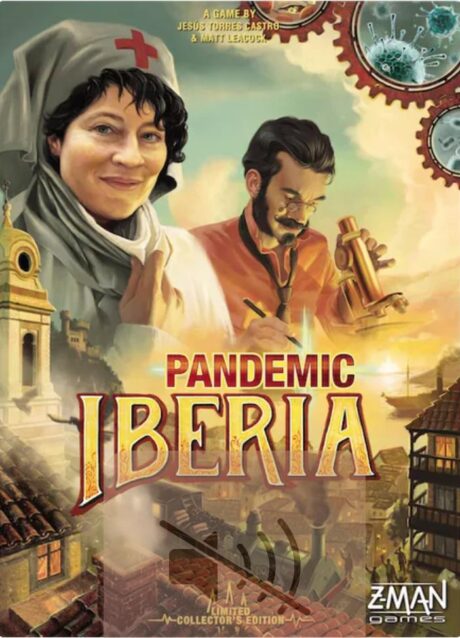
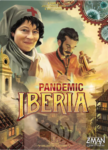
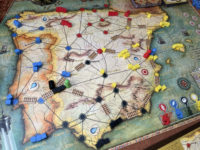
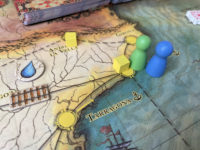
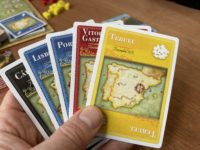
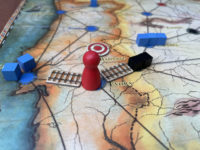


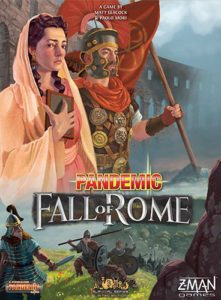
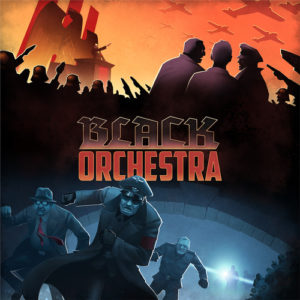
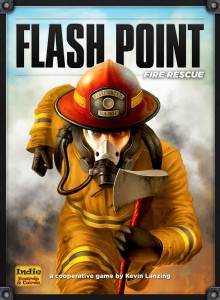
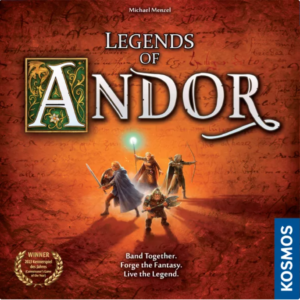
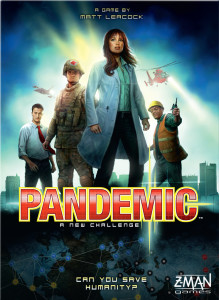
Sam says
Living in a world with an actual pandemic means a game about disease won't appeal to everyone, but tonally the Pandemic series feels well-judged: they're all about co-operation in the face of overwhelming odds, rather than a sardonic take on a serious subject. Although I don't play a huge amount of co-operative games I can heartily recommend pretty much any of the Pandemic series as an experience, and this and Rising Tide are probably my favourites (although I think you only need one Pandemic game in your life). Like many co-operative games you need a good group to play with, striking a balance between committed to the endeavour without 'quarterbacking' (ie telling the other players what to do). Assuming you do, this is enormous fun.